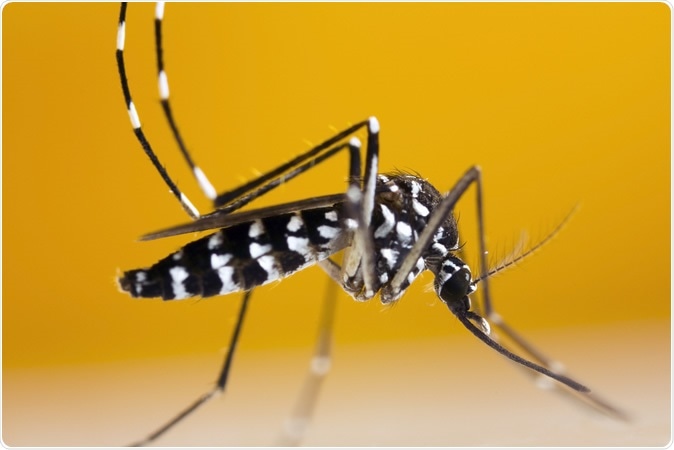Climate change may progressively affect human health for the worse, requiring prompt and resolute action to stabilize it, reports a consortium of 27 leading scientific academies in Europe.

Climate change. Image Credit: Piyaset / Shutterstock
EASAC presents strong evidence of the increasing and diverse risk posed to human health and life by the global increase in temperature. They estimate that by the end of this century, worldwide temperatures will be more than 3°C higher than that before the Industrial Revolution.
This degree of warming could result in our losing many of the public health gains achieved over the last couple of centuries. Health systems may also be unable to cope with the increasing scale of demand.
Immediate, determined and effective action is required to keep the rise below 2°C. This is likely to prevent significant deterioration of health conditions, and to produce great economic advantages as well.
To achieve this, we must recognize that climate change anywhere in the world affects human health on a global scale. Conversely, responsible action by the EU to counter climate change will benefit the human race in toto, both now and for future generations.
Workable solutions have been presented to mitigate climate change, but the chief obstacle is lack of political will to act.
How does climate change affect health?
EASAC identifies both direct and indirect consequences of global climate change on human health, including environmental catastrophes like wildfires, droughts, famine and flooding; loss of food security; increased disease burden (infectious and otherwise); and heat-induced injuries.
The chief dangers of such climate change will include:
- Direct effects of heat exposure and natural calamities, as well as increased release of allergens and air pollutants
- Dwindling food production in some regions of Europe and its trade partners in food
- Increased and changing patterns of infectious disease
- Increased forced migrations as agriculture becomes unsustainable
What are the chief priorities?
Some important areas addressed in the report include:
Zero-carbon economy by 2050
Decarbonization could avert at least 350,000 avoidable deaths a year within the EU, due to the burning of fossil fuels. This accounts for over half of the excess mortality due to air pollution. Over seven million babies in Europe are also at risk of cognitive disability due to polluted air.
Air pollutants and GHG emissions often come from the same sources. Fighting air pollution thus reduces climate change, protects the environment, and promotes health.
Healthier diets
Switching to plant-based diets with less red meat has multiple benefits:
- Reduces food system GHG emissions by 40%
- Less land and water needed for human nutrition
- Llower incidence of non-communicable diseases like stroke and heart disease
- Promotes resilient agriculture systems
- Increases food security
Importing food for the EU from outside could promote deforestation elsewhere, for instance, to get more land on which to raise livestock fodder. Guidelines for “climate-smart” food systems and healthy diets are urgently needed and must be propagated extensively and persuasively.
Infectious diseases
Increasing global temperatures could increase the burden of infectious diseases in both humans and animals in Europe. Both the incidence and the area of distribution are likely to go up. For instance, with greater availability of geographical areas fitting its preferred environmental conditions, the mosquito vector Aedes albopictus which carries the dengue virus is expanding over Europe.

Asian Tiger Mosquito (Aedes albopictus). Image Credit: InsectWorld / Shutterstock
Excessive rainfall and floods could cause an increase in water-borne diarrhea and norovirus infections.
Warmer temperatures could favor the proliferation of food-borne bacteria like Salmonella, with increased food poisoning risks, as well as promoting the emergence of antibiotic-resistant strains of E. coli (or Escherichia coli).
Evidence for urgent change
The negative effects of climate change on human health have been sidelined so far in the EU’s environmental policy, which has concentrated on reducing GHG emissions and preparing for global warming.
The EU must incorporate an evaluation of the health effects of any climate change initiative into its policy, whether domestic or international.
The damage caused by misinformation about the causes and effects of climate change must be resisted successfully. It is important for scientists to gather credible evidence to foster change, and to make this information public. This is crucial to ensure the weight of widespread public sanction behind the decisive movement towards a low-carbon economy.